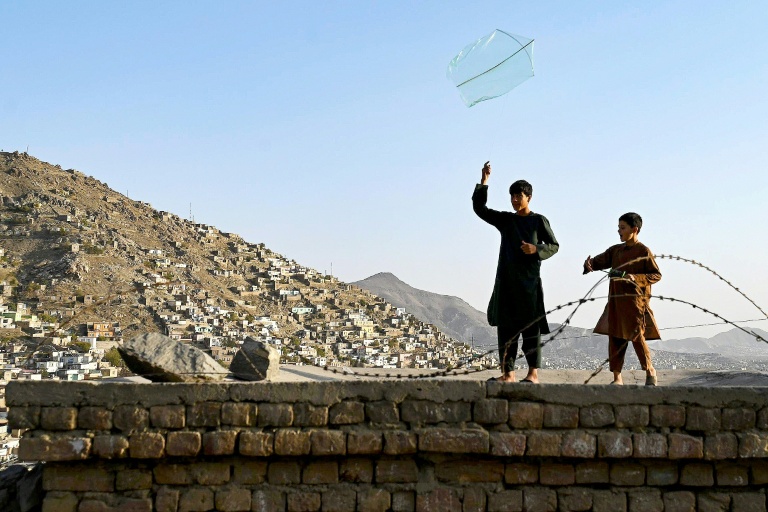Science
Afghans Abroad Struggle to Connect Amid Taliban Internet Blackout

Afghans around the world are facing significant distress as a Taliban-imposed internet blackout has severed communication with their loved ones in Afghanistan. The blackout, which began on Monday, has reduced internet connectivity in the country to less than one percent of normal levels, according to the internet governance watchdog Netblocks. This drastic measure has left many Afghans abroad anxious about the wellbeing of their families, compounding the challenges they already face due to ongoing humanitarian crises in one of the world’s poorest nations.
The Taliban’s decision to enforce this blackout is purportedly aimed at combating what they deem “vice.” The implications are severe, restricting not only communication but also access to education for women and hindering financial support through money transfers. “My mom, my sisters and my brothers are in Afghanistan. One day, I called them like 20 or 10 times, but I couldn’t reach them,” said Mehdi, a 29-year-old Afghan restaurant worker currently in Pakistan. He added, “I don’t know how they survive and how they live,” emphasizing the crippling impact on both communication and financial support for his household.
Humanitarian Crisis Deepens
The situation in Afghanistan is dire, with the United Nations warning of “serious human rights ramifications” due to the blackout. Nooriya Qaderi, a 59-year-old Afghan refugee in New Delhi, expressed her concern, stating, “The whole family is anxious… because of these problems I can’t talk to my family.” The inability to communicate has left many families in a state of constant worry, as the Taliban’s restrictions become increasingly oppressive.
In the Indian capital, restaurant manager Khwaja Zamiruddin, 34, echoed similar sentiments, highlighting the uncertainty his mother faces back home. “We can’t communicate… and sending money has become very difficult,” he explained. This situation has created a profound sense of isolation for Afghans abroad, who depend on technology to support their families.
As of January 2025, approximately 13.2 million people in Afghanistan had internet access, representing around 30.5 percent of the population, according to DataReportal. The country’s connectivity had previously shown signs of improvement, with a reported 9,350-kilometre (5,800-mile) fibre optic network, largely established by previous US-backed governments, intended to integrate Afghanistan into the global community and alleviate poverty.
The Global Response and Future Concerns
The blackout has sparked outrage among Afghans in the diaspora. Rahimullah Habiboghli, who arrived in France five years ago, has been unable to contact his family since the blackout began. He remarked, “I can’t believe it. It cannot last; it’s just not possible. No country in the world is completely cut off from the internet.” Habiboghli, who founded an association aimed at supporting education in Afghanistan, is particularly concerned about the future of his fundraising efforts.
His perspective sheds light on the broader implications of the blackout. “They want to keep their people in the dark, preventing them from seeing the world so they can stay in power,” he stated, voicing a common fear among Afghans that the Taliban’s control will only deepen the country’s isolation.
As the blackout continues indefinitely, the plight of Afghans abroad remains urgent. Many are left without any means to communicate or provide for their families, underscoring the severe human cost of the Taliban’s internet restrictions. The international community watches closely, with potential ramifications for Afghanistan’s future hanging in the balance.
-

 Science3 months ago
Science3 months agoToyoake City Proposes Daily Two-Hour Smartphone Use Limit
-

 Top Stories3 months ago
Top Stories3 months agoPedestrian Fatally Injured in Esquimalt Collision on August 14
-

 Health3 months ago
Health3 months agoB.C. Review Reveals Urgent Need for Rare-Disease Drug Reforms
-

 Technology3 months ago
Technology3 months agoDark Adventure Game “Bye Sweet Carole” Set for October Release
-

 World3 months ago
World3 months agoJimmy Lai’s Defense Challenges Charges Under National Security Law
-

 Lifestyle3 months ago
Lifestyle3 months agoVictoria’s Pop-Up Shop Shines Light on B.C.’s Wolf Cull
-

 Technology3 months ago
Technology3 months agoKonami Revives Iconic Metal Gear Solid Delta Ahead of Release
-

 Technology3 months ago
Technology3 months agoApple Expands Self-Service Repair Program to Canada
-

 Technology3 months ago
Technology3 months agoSnapmaker U1 Color 3D Printer Redefines Speed and Sustainability
-

 Technology3 months ago
Technology3 months agoAION Folding Knife: Redefining EDC Design with Premium Materials
-

 Business3 months ago
Business3 months agoGordon Murray Automotive Unveils S1 LM and Le Mans GTR at Monterey
-

 Technology3 months ago
Technology3 months agoSolve Today’s Wordle Challenge: Hints and Answer for August 19









